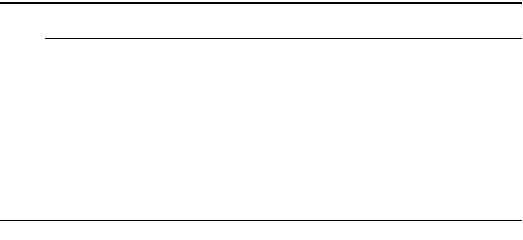
23
▯ Use the broil pan and grid included with your oven.
▯ Do not cover the broil grid with foil. It is designed to
drain fats and oils away from the cooking surface to
prevent smoking and spattering.
▯ Turn meats once during the recommended cook time
(see charts at the end of the book).
▯ Never use heat-proof glass (Pyrex®); it cannot tolerate
the high temperature.
Pizza 2
In the Pizza mode, heat from the lower and upper
elements is circulated throughout the oven by the
convection fan.
Use the Pizza mode for fresh or frozen pizza.
Tips
▯ For a crispy crust, place pizza directly on the rack.
▯ For a softer crust, use a pizza pan.
▯ When proofing dough, coat dough with olive oil and
cover bowl tightly with plastic wrap to prevent crust
formation.
▯ Sprinkle cornmeal on the pizza pan to prevent sticking.
▯ If using a pizza paddle, sprinkle the paddle liberally
with cornmeal for ease in transferring the dough to the
pan.
▯ If parbaking handmade pizza dough, prick the dough
with a fork before baking.
▯ If using a pizza pan, choose a dark, perforated pan for
a more crisp crust and a non-perforated pan for a
softer crust.
▯ Preheat baking stone while the oven is preheating.
▯ Rack positions to use:
Homemade Pizza: rack 2
Frozen: follow manufacturer’s directions
Baking Stone: rack2
▯ The convection fan cycles on and off when using pizza
mode.
Speed Convection ‹
Speed Convection uses all heating elements as well as
the convection fan to evenly distribute heat throughout
the oven cavity. The main difference between Speed
Convection and other convection modes is that it does
not require preheating.
Speed Convection is well suited for frozen convenience
foods such as fish sticks and chicken nuggets.
The benefits of Speed Convection include:
▯ Decrease in cook time since preheating is not
necessary.
▯ Crispy and evenly browned frozen foods.
Tips
▯ Begin cooking all frozen convenience products in a
cold, non-preheated oven. The food will still be done in
package time.
▯ Follow the package instructions for time and
temperature.
▯ Flipping of food halfway through recommended cook
time is not necessary.
▯ Frozen foods that are sold in microwaveable plastic
containers should not be used in this mode.
▯ Cook food items on rack position 3 unless directed
otherwise by the product manufacturer.
▯ Evenly space food items on pan.
▯ For double cavity appliances, only one cavity is
available when using Speed Convection.
Proof (Some Models) %
In Proof, the appliance uses the upper and lower
elements to maintain a low temperature to proof bread or
other yeast doughs.
▯ Proofing is the rising of yeast dough.
▯ The Proof mode temperature is 85°F to 110 °F (29 °C
to 43 °C).
▯ The default temperature in Proof mode is 100 °F
(38 °C).
▯ Loosely cover the bowl or pan and use any rack that
accommodates the size of the container.
▯ Keep the door closed and use the oven light to check
the rising of the dough.
Warm %
In Warm, the upper and lower elements maintain a low
temperature in the oven cavity in order to keep food at
serving temperature.
▯ Use the Warm mode to keep cooked foods hot until
ready to serve.
▯ Warm mode temperatures are 140 °F-220 °F (66 °C -
107 °C).
▯ The default temperature in the Warm mode is 170 °F
(77 °C).
▯ Foods that must be kept moist should be covered with
a lid or aluminum foil.
9 CAUTION
WHEN USING WARM MODE, FOLLOW THESE
GUIDELINES:
▯ Do not use the Warm mode to heat cold food.
▯ Be sure to maintain proper food temperature. The
USDA recommends holding hot food at 140 °F
(60 °C) or warmer.
▯ DO NOT warm food longer than one hour.


















